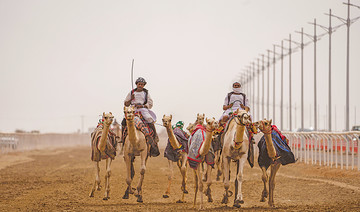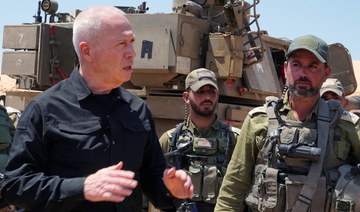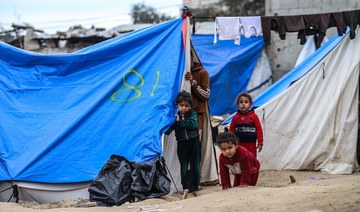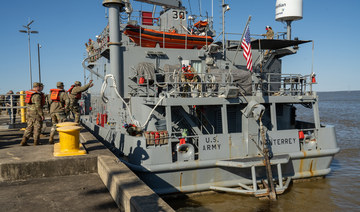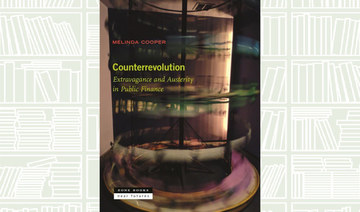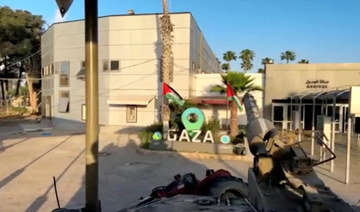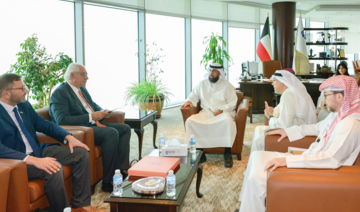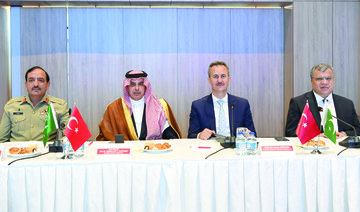The second phase of the Crown Prince Camel Festival kicks off on Saturday in Taif, after a one-week pause due to Eid Al-Adha.
Ten racing rounds of 2-4 km will take place over the course of two days. The first phase witnessed the participation of camel owners from all over the Gulf.
Participants said the festival’s timing and location are appropriate in terms of the temperature, and they praised the Saudi Federation of Camels for ensuring its success.
The festival includes a number of competitions, including one for photographers for a prize of SR90,000 ($23,998), and another for commentators for prizes amounting to SR125,000.
The festival aims to enhance the camel heritage in Saudi, Arab and Islamic culture.
Second phase of Saudi Crown Prince Camel Festival begins
Second phase of Saudi Crown Prince Camel Festival begins

Israeli Rafah offensive would break international law, says UK deputy foreign minister

- Andrew Mitchell warns a ground invasion could strengthen Hamas, in comments viewed as attempt to get Israel to sign up for peace deal accepted by Hamas on Monday
- UN chief Antonio Guterres urges Israel to ‘stop any escalation’ after tanks enter Rafah and army takes control of crossing on the border with Egypt
LONDON: An Israeli ground offensive in Rafah would contravene international humanitarian law and would not succeed in removing Hamas from power in Gaza or eradicating the organization, Britain’s deputy foreign minister warned on Tuesday.
Andrew Mitchell said Israeli authorities had failed to present a military plan that complies with international law, and that entering Rafah, which has become the final refuge for more than a million people displaced by fighting in other parts of Gaza, could strengthen, not weaken, Hamas.
However, he stopped short of saying what international consequences, if any, Israel might face if it proceeds.
Mitchell reiterated the UK government’s desire for a permanent, sustained ceasefire in Gaza. His comments, which followed a similar statement by authorities in France on Monday, were seen as an attempt to put pressure on Israel to sign up for a provisional, three-stage peace deal that was accepted by Hamas on Monday, The Guardian newspaper reported on Tuesday.
Israeli minister Benny Gantz has said the peace proposal did not “correspond to the dialogue that has taken place so far with the mediators and has significant gaps.”
Mitchell also echoed calls from the UN for Israel to end a renewed block on humanitarian aid entering Gaza. Also on Tuesday, UN Secretary-General Antonio Guterres called for border crossings to be reopened “immediately” so that essential aid can be delivered to Gaza. He urged Israeli authorities to “stop any escalation” after they sent tanks into Rafah early on Tuesday and the army took control of the nearby crossing on the border with Egypt.
“Things are moving in the wrong direction. I am disturbed and distressed by the renewed military activity in Rafah by the Israel Defense Forces,” Guterres said.
International pressure has been building on Israel over the potentially devastating consequences of a threatened ground invasion of Rafah, where the UN estimates about 1.4 million Palestinians are sheltering.
EU foreign policy chief Josep Borrell said such action could cause many “civilian casualties.” White House spokesperson John Kirby said that Israel told Washington its operation in Rafah “was limited and designed to cut off Hamas’s ability to smuggle weapons” into Gaza.
Egypt has urged Israeli authorities to “exercise the utmost restraint.” The Organization for Islamic Cooperation condemned Israel’s “criminal aggression.”
US completes construction of Gaza aid pier

WASHINGTON: The US military has completed construction of its Gaza aid pier, but weather conditions mean it is currently unsafe to move the two-part facility into place, the Pentagon said Tuesday.
The pier — which the US military started building last month and which will cost at least $320 million — is aimed at boosting deliveries of desperately needed humanitarian assistance to Gaza, which has been ravaged by seven months of Israeli operations against Hamas.
“As of today, the construction of the two portions of the JLOTS — the floating pier and the Trident pier — are complete and awaiting final movement offshore,” Deputy Pentagon Press Secretary Sabrina Singh told journalists, using an acronym for Joint Logistics Over-the-Shore, the official name for the pier capability.
“Today there are still forecasted high winds and high sea swells, which are causing unsafe conditions for the JLOTS components to be moved. So the pier sections and military vessels involved in its construction are still positioned at the port of Ashdod,” in Israel, Singh said.
US Central Command (CENTCOM) “stands by to move the pier into position in the near future,” she added.
The vessels and the under-construction pier were moved to the port due to bad weather last week. Once the weather clears, the pier will be anchored to the Gaza shore by Israeli soldiers, keeping US troops off the ground.
Aid will then be transported via commercial vessels to a floating platform off the Gaza coast, where it will be transferred to smaller vessels, brought to the pier, and taken to land by truck for distribution.
Plans for the pier were first announced by US President Joe Biden in early March as Israel held up deliveries of assistance by ground, and US Army troops and vessels soon set out on a lengthy trip to the Mediterranean to build the pier.
Some two months later, the humanitarian situation in Gaza remains dire. The United Nations said Tuesday that Israel had denied it access to the Rafah crossing — the key entry point for aid into the besieged territory.
The White House said the closing of Rafah and the other main crossing, Karem Shalom, was “unacceptable” and needed to be reversed.
In addition to seeking to establish a maritime corridor for aid shipments, the United States has also been delivering assistance via the air.
CENTCOM said American C-130 cargo planes dropped more than 25,000 Meal Ready To Eat military rations into Gaza on Tuesday in a joint operation that also delivered the equivalent of more than 13,000 meals of Jordanian food supplies.
“To date the US has dropped 1,200 tons of humanitarian assistance,” CENTCOM said in a statement.
Gaza’s bloodiest-ever war broke out following Hamas’s unprecedented October 7 attack on Israel, which resulted in the deaths of more than 1,170 people, mostly civilians, according to an AFP tally of Israeli official figures.
Israel’s retaliatory offensive has killed at least 34,789 people in Gaza, mostly women and children, according to the Hamas-run territory’s health ministry.
What We Are Reading Today: ‘The Gull Guide: North America’
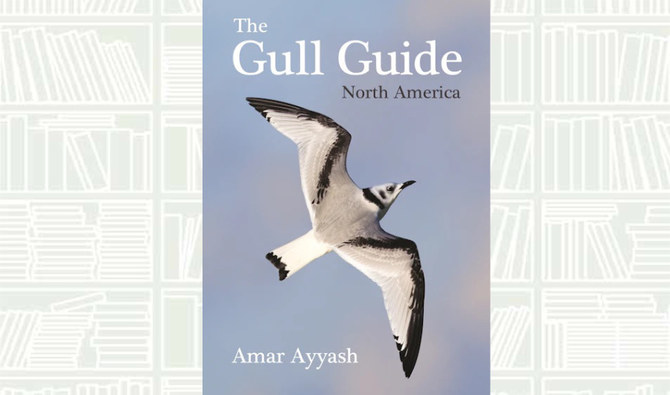
Author: AMAR AYYASH
Gull identification can be challenging for even the most seasoned birder.
While these birds are common to coasts, lakes, and rivers, they exhibit remarkable plumage changes related to age, which is sometimes complicated by similarities between species and a readiness to hybridize.
This book provides an invaluable identification guide to all regularly occurring gull species and subspecies throughout North America.
Berlin students protest for Gaza as demos spread across Europe
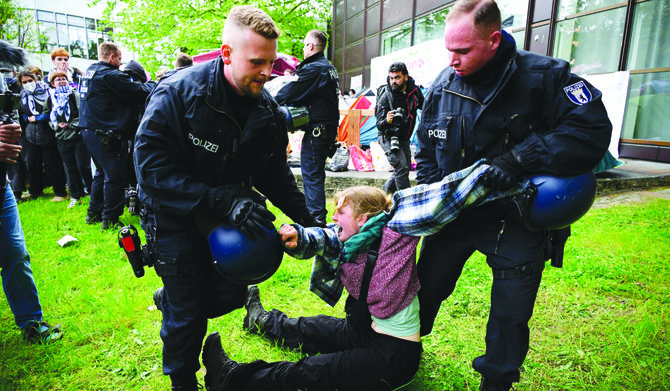
- Scuffles erupt between officers, protesters
- Crackdown on University of Amsterdam protest
- Israel has killed more than 34,700 Palestinians, most of them women and children, according to the Hamas government's Ministry of Health
AMSTERDAM: German police on Tuesday broke up a protest by several hundred pro-Palestinian activists who had occupied a courtyard at Berlin’s Free University earlier in the day, the latest such action by authorities as protests that have roiled campuses in the US spread across Europe.
Some demonstrators have even called for a break in academic ties with Israel over the war in Gaza.
In Berlin, the protesters had put up about 20 tents and formed a human chain around them. Most had covered their faces with medical masks and draped keffiyeh scarves around their heads, shouting slogans such as “Viva, viva Palestina.”
Berlin police called on the students via loudspeakers to leave the campus. Police were seen carrying some students away as scuffles erupted between officers and protesters. Police also used pepper spray against some of the protesters.
In the eastern German city of Leipzig, about 50 pro-Palestinian protesters set up tents on campus of Leipzig University and occupied a lecture hall on Tuesday afternoon.
Earlier on Tuesday, Dutch police broke up a similar pro-Palestinian demonstration camp at the University of Amsterdam. Police spokeswoman Sara Tillart said about 140 protesters were arrested, two of whom remain in custody on suspicion of committing public violence.
Amsterdam police said on the social media platform X that their action was “necessary to restore order” after protests turned violent. There were no immediate reports of injuries.
Video aired by national broadcaster NOS shows police using a mechanical digger to push down barricades and officers with batons and shields moving in, beating some of the protesters and pulling down tents. Protesters had formed barricades from wooden pallets and bicycles, NOS reported.
In Austria, protesters camped out in about 20 tents set up in the main courtyard of the University of Vienna for a second day Tuesday. With police monitoring, protesters cordoned off the encampment, which is near a memorial for Austrian Jews who perished in the Holocaust.
The University of Vienna and the main Austrian Union of Students distanced themselves from the protest. The union said “antisemitic groups were among the protest’s organizers,” which the protesters denied. Pro-Palestine protest camps have sprung up at about a dozen universities in Britain, including at Oxford and Cambridge, urging the institutions to fully disclose investments, cut academic ties with Israel and divest from businesses linked to the country.
Dozens of students have pitched up Gaza solidarity encampments on lawns outside King’s College at Cambridge University and the Pitt Rivers Museum in Oxford.
“Oxbridge’s profits cannot continue to climb at the expense of Palestinian lives, and their reputations must no longer be built on the whitewashing of Israeli crimes,” said a joint statement from protesters at the two universities.
Over 200 Oxford academics have signed an open letter supporting the protests.
In Finland, dozens of protesters from the Students for Palestine solidarity group set up an encampment outside the main building at the University of Helsinki, saying they would stay there until the university, which is Finland’s largest academic institution, cuts academic ties with Israeli universities.
In Denmark, students set up a pro-Palestinian encampment at the University of Copenhagen, erecting about 45 tents outside the campus of the Faculty of Social Sciences. The university said students can protest but called on them to respect the rules on campus grounds.
In Italy, students at the University of Bologna, one of the world’s oldest universities, set up a tent encampment over the weekend to demand an end to the war in Gaza as Israel prepared an offensive in Rafah, despite pleas from its Western allies against it. Groups of students organized similar protests in Rome and Naples, which were largely peaceful.
In Spain, dozens of students have spent over a week at a pro-Palestinian encampment on the University of Valencia campus. Similar camps were set up Monday at the University of Barcelona and at the University of the Basque Country. A group representing students at Madrid’s public universities announced it would step up protests against the war in the coming days.
In Paris, student groups called for gatherings in solidarity with Palestinians later Tuesday.
On Friday, French police peacefully removed dozens of students from a building at the Paris Institute of Political Studies, known as Sciences Po, after they had gathered in support of Palestinians.
On Tuesday, students at the prestigious institution, which counts French Premier Gabriel Attal and President Emmanuel Macron among its alumni, were seen entering the campus unobstructed to take exams as police stood.
Kuwait, Turkiye sign agreements during emir’s state visit
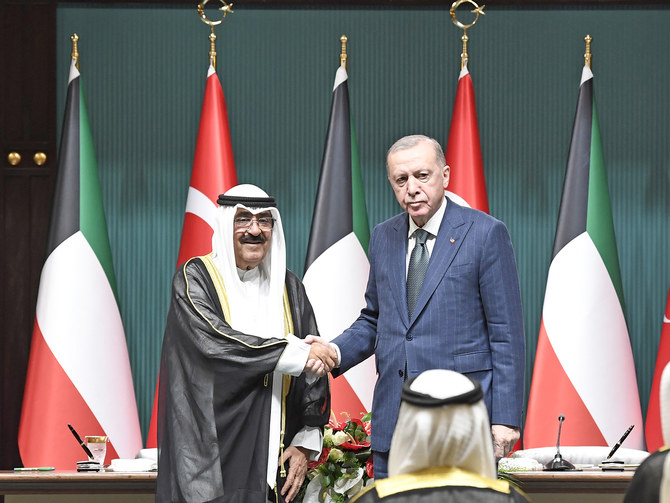
- Several cooperation deals inked at the Presidential Palace in Ankara
LONDON: Kuwait’s Emir Sheikh Meshal Al-Ahmed Al-Jaber Al-Sabah held talks on Tuesday with Turkish President Recep Tayyip Erdogan on a range of regional and international issues during his official visit to Ankara.
The two parties “expressed a common desire to bolster cooperation and coordination in many fields,” in particular trade and investment, and the emir said the two countries had the potential to boost trade exchange and investment opportunities, the Kuwait News Agency reported.
He went on to praise the “historic relations between our countries for the past 60 years, since their establishment in 1964,” and added “we express our aspirations toward promoting these relations to honor the aspirations of our peoples.”
Sheikh Meshal, who had arrived in the Turkish capital earlier on Tuesday, also praised Turkiye’s “honorable” support for Kuwait during Iraq’s invasion in 1990.
The Kuwaiti emir welcomed the start of negotiations for a free trade agreement between the GCC (Gulf Cooperation Council) and Turkiye, which commenced following the signing of a joint statement on April 21.
He added: “We affirm our aspiration for strengthening joint cooperation in all fields, especially in the defense domain through government-to-government contracting.”
The two leaders witnessed the signing of several cooperation agreements at the Presidential Palace in Ankara, including an executive protocol between the Kuwaiti and Turkish defense ministries.
The countries’ foreign ministries signed a memorandum of understanding to establish a strategic dialogue, while the Kuwaiti Civil Defense and the Turkish Ministry of Interior Disaster and Emergency Management Authority also signed a memorandum.
Letters of intent were signed between the Kuwait Direct Investment Promotion Authority and the Turkish General Authority for Free Zones in the Ministry of Trade on cooperation in the free zones field, and between the Kuwaiti Ministry of State for Housing Affairs and the Turkish Ministry of Environment, Urbanization and Climate Change on cooperation in housing and infrastructure.
The Kuwait Investment Authority and the Turkish Presidency Investment Office signed a memorandum regarding cooperation on investment promotion.
Erdogan awarded Sheikh Meshal with the State Order “to reflect deep-rooted ties between the two friendly countries,” KUNA said.
The emir also paid a visit to the Ataturk Mausoleum in Ankara during the visit.






